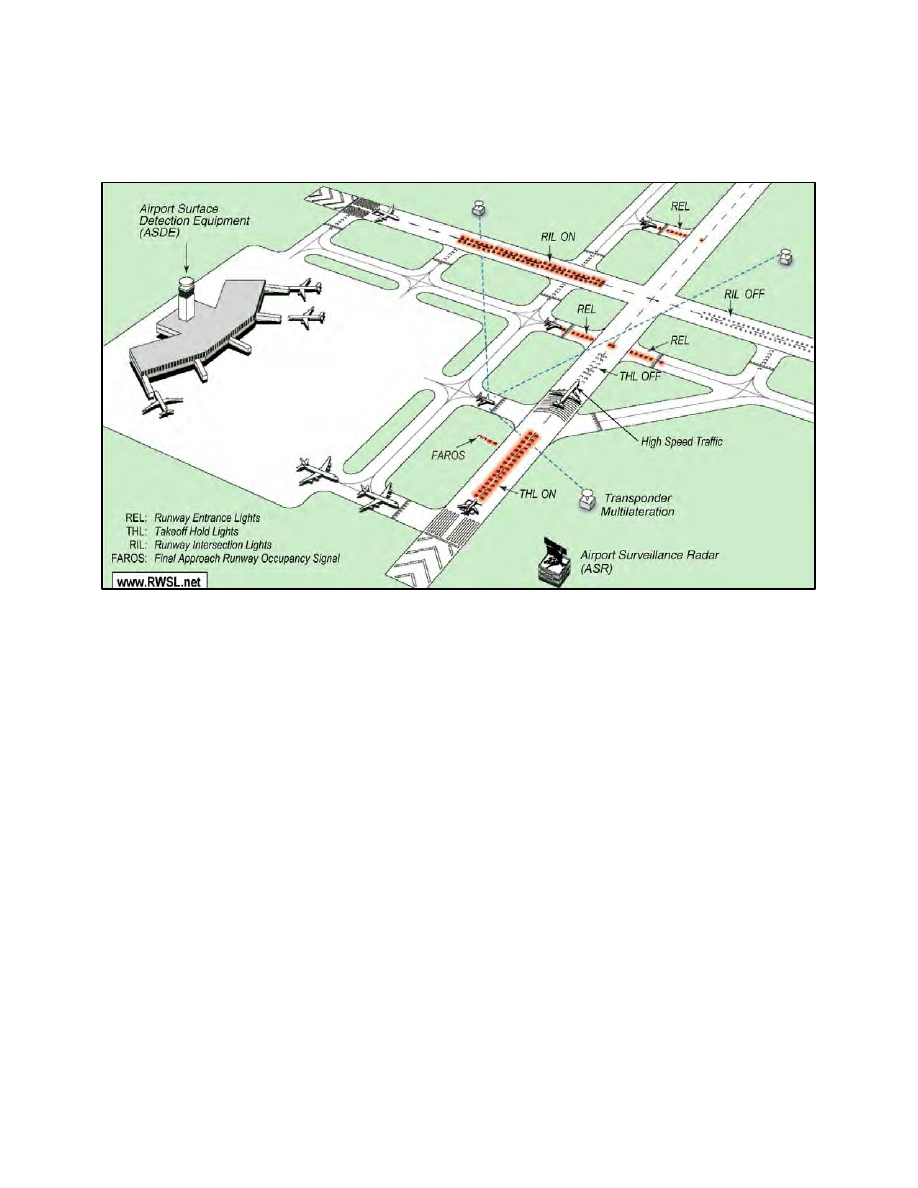
AIM
4/3/14
2−1−8
Airport Lighting Aids
enter or cross. Contact ATC at the earliest possible
opportunity.
FIG 2
−1−9
Runway Status Light System
c.
Takeoff Hold Lights (THL) : The THL system
is composed of flush mounted, in-pavement,
unidirectional light fixtures in a double longitudinal
row aligned either side of the runway centerline
lighting. Fixtures are focused toward the arrival end
of the runway at the “line up and wait” point. THLs
extend for 1,500 feet in front of the holding aircraft
starting at a point 375 feet from the departure
threshold (see FIG 2−1−13). Illuminated red lights
provide a signal, to an aircraft in position for takeoff
or rolling, that it is unsafe to takeoff because the
runway is occupied or about to be occupied by
another aircraft or ground vehicle. Two aircraft, or a
surface vehicle and an aircraft, are required for the
lights to illuminate. The departing aircraft must be in
position for takeoff or beginning takeoff roll. Another
aircraft or a surface vehicle must be on or about to
cross the runway.
1.
THL Operating Characteristics − Departing
Aircraft:
THLs will illuminate for an aircraft in position for
departure or departing when there is another aircraft
or vehicle on the runway or about to enter the runway
(see FIG 2−1−9.) Once that aircraft or vehicle exits
the runway, the THLs extinguish. A pilot may notice
lights extinguish prior to the downfield aircraft or
vehicle being completely clear of the runway but still
moving. Like RELs, THLs have an “anticipated
separation” feature.
NOTE
−
When the THLs extinguish, this is not clearance to begin a
takeoff roll. All takeoff clearances will be issued by ATC.
2.
What a pilot would observe: A pilot in
position to depart from a runway, or has begun takeoff
roll, will observe THLs illuminate in reaction to an
aircraft or vehicle on the runway or entering or
crossing it. Lights will extinguish when the runway is
clear. A pilot may observe several cycles of
illumination and extinguishing depending on the
amount of crossing traffic.
3.
When a pilot observes the red light of the
THLs, the pilot should safely stop if it’s feasible or
remain stopped. The pilot must contact ATC for
resolution if any clearance is in conflict with the
lights. Should pilots note illuminated lights while in
takeoff roll and under circumstances when stopping
is impractical for safety reasons, the crew should